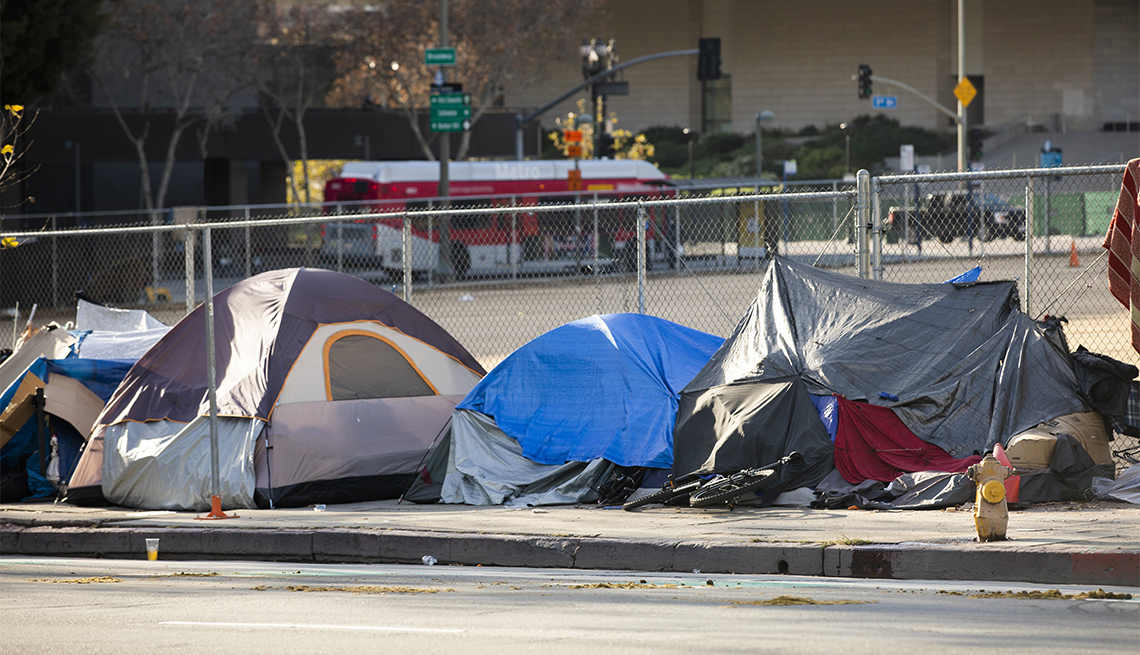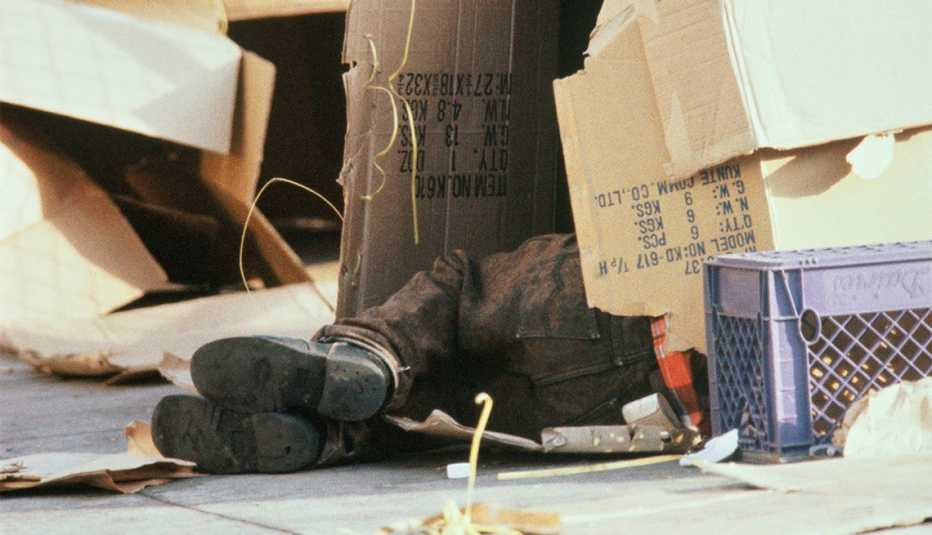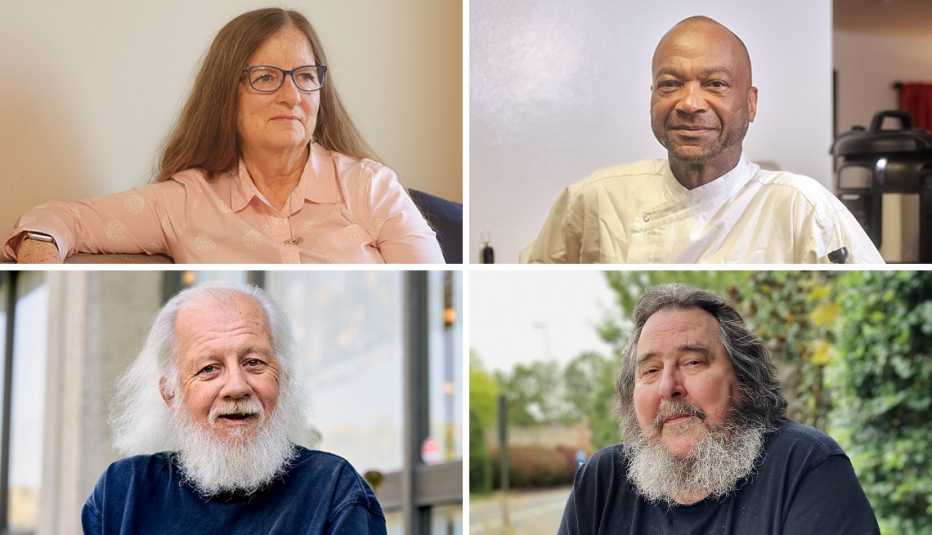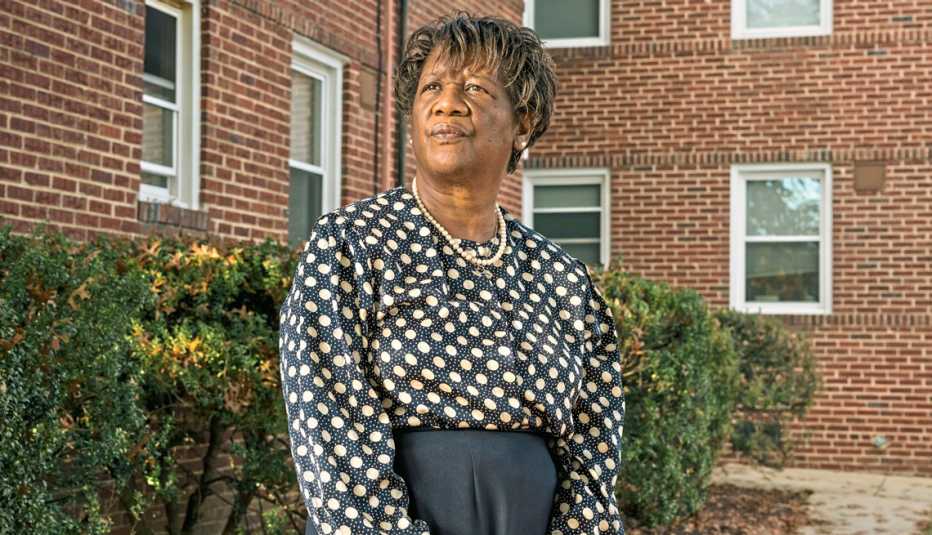AARP Hearing Center
An increase in the number of older adults who are becoming homeless has experts and advocates worried.
Without access to consistent care, older adults who don't have a permanent place to stay often experience increases in medical issues and mental health challenges. Many homeless shelters aren't equipped for older people who may not be able to access bunk beds or may need facilities with wheelchair access. And this problem is expected to grow: A 2019 study by university researchers found that the number of people 65 and older who are homeless will nearly triple compared with 2017.

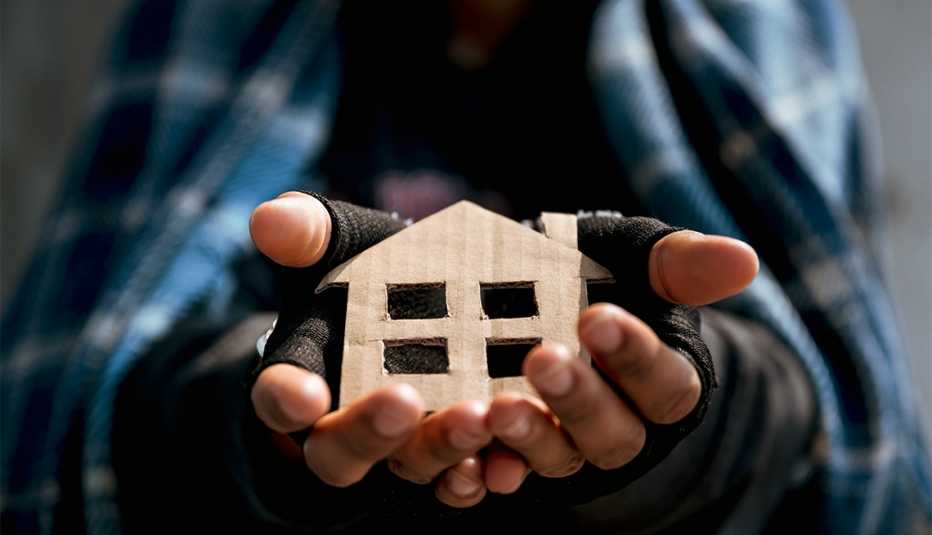
Homelessness Among Older Adults
Find out more about the crisis of the unhoused and how to help:
- The Graying of America's Homeless An Alarming Trend: Climbing housing costs, unemployment and medical issues are leaving an increasing number of adults over 50 without a place to live. Researchers predict that by 2030, the number of people 65 and older who are homeless will almost triple.
- Meet 4 Older Adults Who Survived Homelessness: Follow the stories of four people who have been homeless and their journeys to a permanent address.
“These are human beings who need our compassion, need our support and need the resources to be able to reconnect with community,” says Jeff Olivet, executive director of the U.S. Interagency Council on Homelessness.
He says the need for average people to step up and volunteer to help those unhoused is “huge.”
Here are some organizations that can provide help and assistance, and some ways for others to provide support.
Federal government
U.S. Department of Housing and Urban Development (HUD)
- The online feature, Find Shelter, lists shelters, food pantries, health clinics and places to obtain clothing.
- This HUD web page lists names and contact information for state and local officials who help people experiencing or at risk of homelessness.
U.S. Department of Veterans Affairs (VA)
- The VA has several programs for veterans and their families dealing with issues related to homelessness. The VA urges former service members who have no place to live or are at risk of homelessness to contact its National Call Center for Homeless Veterans at (877) 4AID-VET (877-424-3838).

































































